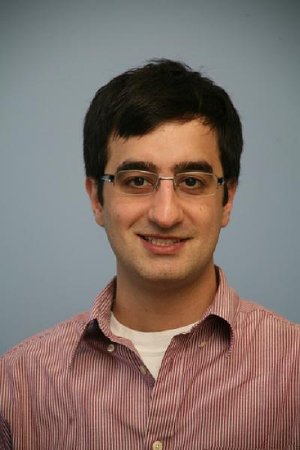Jul 10 2009
Rashid Zia, assistant professor of engineering, has been named one of this year's winners of the Presidential Early Career Awards for Scientists and Engineers. The White House named the latest group of winners this week.
 Rashid Zia is an assistant professor of engineering at Brown University. Credit: Lauren Brennan, Brown University
Rashid Zia is an assistant professor of engineering at Brown University. Credit: Lauren Brennan, Brown University
The PECASE award recognizes outstanding scientists and engineers who, early in their careers, show exceptional potential for leadership at the frontiers of knowledge. It is the highest honor bestowed by the U.S. government on scientists and engineers beginning their independent careers. In addition to the recognition, Zia is expected to receive $200,000 annually over five years to support his research.
"I am very excited about this award and the ongoing work in our lab," Zia said. "It means a lot for my new research group to have this level of support."
Zia joined the Brown faculty in 2006 after earning his Ph.D. in electrical engineering at Stanford University. He attended Brown as an undergraduate, where he earned a combined degree in electrical engineering and English literature.
Zia's research focuses on the intersection of plasmonics and rare-earth emitters. Plasmonics is important because it studies the direct connection between electrical devices (those that use charge) and photonic devices (those that use light). The field "potentially offers the speed and bandwidth of optics at the nanosize scale of electronics," Zia said.
Zia is also looking at lanthanide ions, the rare-earth materials that have been used as light emitters in a range of technologies from fluorsescent lighting and color displays to lasers and fiber-optic amplifiers. "We're using (lanthanides) in a new way," Zia said of his Laboratory for Subwavelength Optics. "Most light is emitted by electrical dipole transitions. We're looking at magnetic dipole transitions."
Rod Clifton, acting dean of engineering, praised Zia's selection as a PECASE recipient. "We are very excited about Rashid receiving both of this year's two highest awards for young faculty members: the NSF CAREER Award and the PECASE. He is already making important contributions to teaching and research by the photonics group in the Division of Engineering. With the substantial long-term funding that he now has, he is well positioned to develop an internationally recognized research program," Clifton said.
Zia joins 40 young scientists nationwide nominated by the Department of Defense and chosen as winners in the PECASE competition. (Various federal agencies, including the Department of Defense, nominate 100 candidates.) Each winner receives agency support for five years. Last year, Anastasia Volovich, the Richard and Edna Salomon Assistant Professor of Physics, won the award.
"These extraordinarily gifted young scientists and engineers represent the best in our country," President Obama said. "With their talent, creativity, and dedication, I am confident that they will lead their fields in new breakthroughs and discoveries and help us use science and technology to lift up our nation and our world."
The awards, established by President Clinton in February 1996, are coordinated by the Office of Science and Technology Policy within the Executive Office of the President. Awardees are selected on the basis of two criteria: Pursuit of innovative research at the frontiers of science and technology, and a commitment to community service as demonstrated through scientific leadership, public education, or community outreach. Winning scientists and engineers receive up to a five-year research grant to further their study in support of critical government missions.